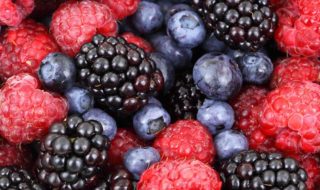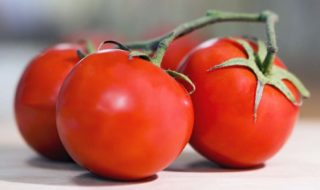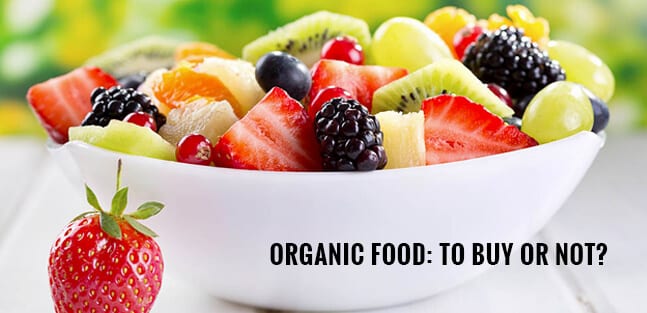Nutrition
ORGANIC FOOD: TO BUY OR NOT? | Possible
In a perfect world, all food would be organic food and we would all be able to afford it. Instead we always pose these questions to ourselves when we come across the organic food aisle; Is this worth paying more?
What are the health implications? What is the guarantee of these foods to have undergone organic farming?
Let’s get real here: most organic foods or organic products have not been proven to be “better” for you, meaning it doesn’t contain more nutrients or some magic cancer-fighting voodoo.
So far, studies have been inconclusive about the effects of eating a diet rich in organic foods versus non-organic foods. But even sceptics can’t argue with the principles of organic farming and food buying: no harmful chemicals and sustainable environmental practices.
WHAT IS ORGANIC FARMING ?

Organic farming is a method of crop and livestock production that involves much more than choosing not to use pesticides, fertilizers, genetically modified organisms, antibiotics and growth hormones.
Organic farming promotes the use of crop rotations and cover crops, and encourages balanced host/predator relationships. Organic residues and nutrients produced on the farm are recycled back to the soil.
An organic product is made from materials produced by organic agriculture. If you are sometimes confused when navigating the different marketing terms for organic products and natural products you are not alone.
Whether or not these labels accurately define the products depends on regulations.
Below is a list of 6 food items using the EWG(Environmental Working Group) and other researchers’ information that you should pony up for and go organic.
1. APPLES:
Choose organic as most of them are pesticide laden.If you’re going to buy just one thing organic, make it apples.
They consistently appear at the top of the EWG’s offenders list, harbouring a number of pesticides that traditional farmers use to keep pests and disease at bay. Apples are a good source of fibre, especially if you eat the peel.
The peel also has nutrients that may cut your odds of getting cancer and heart disease. But the peel is also where pesticides can build up.
So buying organic apples makes sense. If you can’t afford it, scrubbing their skins under running water can help reduce pesticide residues too.
2. PEACHES AND NECTARINES
These delicious stone fruits have thin, edible skins and are naturally delicate, so they are typically sprayed with various poisons to keep them from molding and to keep away pests.
Even if you peel your peaches or nectarines, traces of chemicals will remain. Some doctors suggest buying organic versions of these fruit is especially important if you are pregnant or have children.
3. CELERY
Celery also scored high on EWG’s list, with 13 chemicals detected in total.
A crunchy, low-calorie vegetable with a bit of vitamins A, C, and K, folate, potassium, and manganese, one large stalk of celery has only about 10 calories.
Whether or not you buy organic celery, you can reduce pesticide residues, dirt, and bacteria by thoroughly washing the stalks under streaming water. Do not use soap.
4. PEANUT BUTTER
Kids tend to eat a lot of peanut butter, and peanut butter made from just organic peanuts and salt is better than conventional peanut butter with added hydrogenated oils and sugar.
The natural oils in organic peanut butter may separate and form a layer on top of the jar. If so, just stir it all up so it’s creamy again.
5.STRAWBERRIES AND CHERRIES
Berries are sensitive and heavily exposed — they don’t have a tough outer shell or skin to protect them.
Because they grow largely unprotected, they are more susceptible to pests, and pesticides are often the solution. Note that according to the EWG, domestically-grown berries are more contaminated than international varieties.
6.TOMATOES

Tomatoes tops the list of organic vegetables. Tomatoes are one of the only fruits or vegetables that has been proven to be more nutritious in organic form.
According to a study, organic tomatoes have nearly double the concentration of flavonoids, which are considered very healthful.
Conventional tomatoes also made the EWG naughty list, so the choice seems clear: organic all the way.
Not only is the organic farming better for human health and the environment than conventional production, emerging science reveals in addition to lacking the toxic residues of conventional foods, organic food is more nutritious. Whether or not you buy organic products, you can do your part to reduce pesticide residues on foods with the following tips:
- Wash and scrub produce under streaming water to remove dirt, bacteria, and surface pesticide residues — even produce with inedible skins. Don’t use soap. Do so even if you have got home an organic food.
- Remove the outer leaves of leafy vegetables.
- Eat a variety of foods from different sources.
Organic foods are definitely the next step in terms of health.
You may think you are eating healthy by including many servings of fruits and vegetables but actually you are eating pesticides. So go organic today.
Recommended Read: Biodynamic Farming and Nutrition
